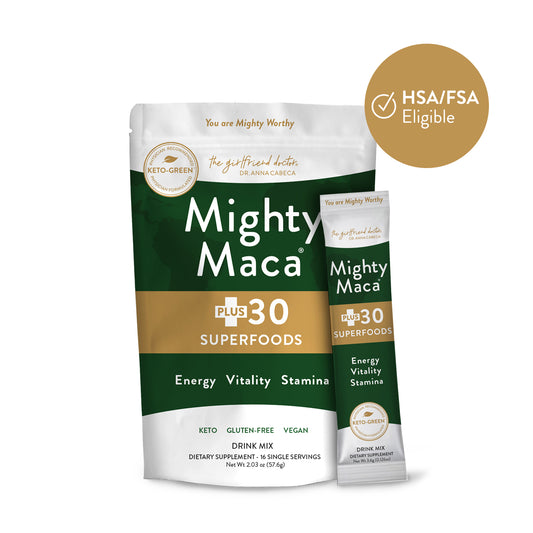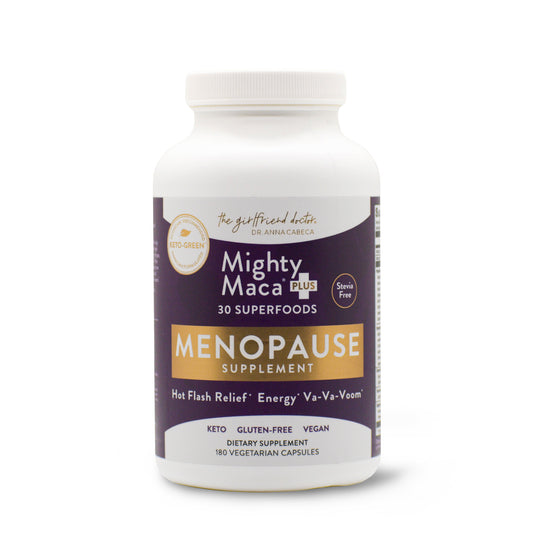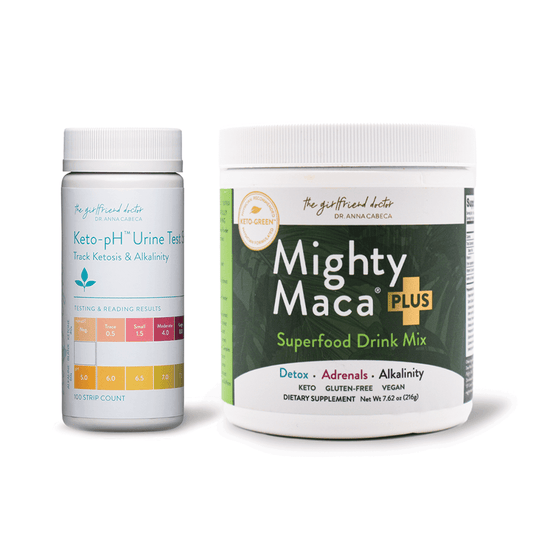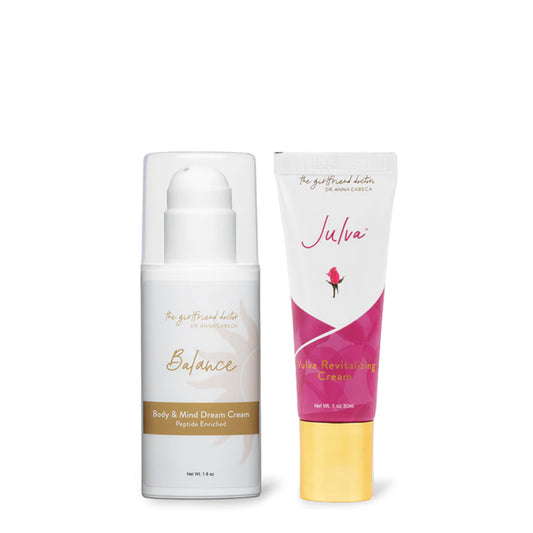The Hidden Health Crisis Affecting Millions of Women
If you're experiencing unexplained weight gain, mood swings, fatigue, or worsening menopause symptoms despite doing "everything right," you might be dealing with chronic low-grade inflammation—a silent disruptor that's wreaking havoc on your hormonal system.
Recent research reveals that chronic inflammation doesn't just cause joint pain or digestive issues. It's a master manipulator of your endocrine system, interfering with hormone production, metabolism, and cellular communication in ways that can make you feel like your body is working against you.
In This Article, You Will Learn:
• How chronic inflammation disrupts estrogen, progesterone, and insulin production
• The inflammatory-hormonal feedback loop that perpetuates symptoms
• Evidence-based natural solutions to break the cycle
• Targeted nutritional support to restore hormonal harmony
• Practical lifestyle modifications for long-term inflammatory balance

Chronic inflammation and hormonal imbalance create a vicious cycle that can feel impossible to break. When your body is in a constant state of low-grade inflammation, it prioritizes immediate survival over optimal hormone production—a biological response that made sense for our ancestors but wreaks havoc in our modern world.
The Inflammatory Cascade in Women's Bodies
Research published in the Journal of Clinical Endocrinology & Metabolism demonstrates that inflammatory cytokines—chemical messengers released during inflammation—directly interfere with the hypothalamic-pituitary-ovarian axis, the master control system for female hormones (Pasquali et al., 2023). This interference manifests in several critical ways:
Estrogen Disruption: Chronic inflammation increases the enzyme aromatase, which converts testosterone to estrogen. While this might sound beneficial, it often leads to estrogen dominance and an imbalance between estrogen and progesterone—contributing to heavy periods, mood swings, and weight gain around the midsection.
Progesterone Suppression: Inflammatory stress signals the body to produce more cortisol, which competes with progesterone for the same building blocks. This "pregnenolone steal" leaves you with insufficient progesterone for mood stability, sleep quality, and metabolic regulation.
Insulin Resistance: Inflammatory cytokines interfere with insulin signaling, making it harder for your cells to respond to insulin effectively. This creates a cascade of metabolic dysfunction that affects everything from energy levels to fat storage patterns.

Before we can address chronic inflammation, it's crucial to understand its primary drivers in modern women's lives. Unlike acute inflammation from an injury, chronic inflammation often stems from seemingly innocuous daily exposures that accumulate over time.
Dietary Inflammatory Triggers
The Standard American Diet, rich in processed foods, refined sugars, and omega-6 fatty acids, creates a pro-inflammatory environment in the body. Research shows that women are particularly susceptible to inflammatory responses from certain food groups during hormonal transitions.
Ultra-processed Foods: These products contain inflammatory compounds like advanced glycation end products (AGEs) and trans fats that trigger immune responses and oxidative stress.
Sugar and Refined Carbohydrates: Rapid blood sugar spikes promote the release of inflammatory cytokines and contribute to insulin resistance—particularly problematic for women over 40 whose glucose metabolism naturally becomes less efficient.
Food Sensitivities: Undiagnosed food sensitivities to gluten, dairy, or other common foods can create chronic intestinal inflammation that systemically affects hormone production.
Environmental and Lifestyle Factors
Chronic Stress: Perhaps the most significant contributor to inflammatory overload, chronic stress elevates cortisol levels, which initially suppress inflammation but eventually lead to immune dysfunction and increased inflammatory markers.
Poor Sleep Quality: Sleep deprivation triggers the release of inflammatory cytokines and disrupts the natural circadian rhythm that governs hormone production. Women experiencing menopause are particularly vulnerable due to hormonal sleep disruptions.
Sedentary Lifestyle: Lack of regular movement contributes to systemic inflammation, while excessive high-intensity exercise without adequate recovery can also promote inflammatory responses.
Toxin Exposure: Environmental toxins in cleaning products, personal care items, and pesticide residues act as endocrine disruptors while triggering inflammatory responses.
The Gut-Hormone-Inflammation Triangle
Emerging research reveals that gut health plays a pivotal role in both inflammatory responses and hormonal balance. The gut microbiome produces metabolites that directly influence hormone metabolism while serving as a first line of defense against inflammatory triggers.
The Estrobolome Connection
Your gut contains specific bacteria collectively called the "estrobolome" that metabolize estrogen. When gut health is compromised by inflammation, these beneficial bacteria decline, leading to improper estrogen metabolism and accumulation of harmful estrogen metabolites.
Gut Thrive contains a comprehensive blend of probiotics specifically chosen to support the estrobolome and reduce intestinal inflammation. This targeted probiotic formula includes Lactobacillus reuteri and Bifidobacterium longum—strains shown in clinical studies to reduce inflammatory markers while supporting healthy estrogen metabolism.*
These statements have not been evaluated by the Food and Drug Administration. This product is not intended to diagnose, treat, cure, or prevent any disease.
One customer shared: "After three months of taking Gut Thrive, my bloating disappeared, and for the first time in years, my periods became regular again. My energy levels are through the roof!"
Targeted Nutritional Support for Inflammatory Balance
While addressing root causes is essential, targeted nutritional support can help break the inflammatory cycle more quickly while your body heals from underlying imbalances.
The Power of Adaptogenic Support
Adaptogenic herbs help modulate the stress response system, reducing chronic cortisol elevation that drives inflammation. These remarkable plants work by supporting the hypothalamic-pituitary-adrenal (HPA) axis—the same system that governs your fight-or-flight response.
Mighty Maca Plus combines over 30 superfoods and adaptogens specifically chosen for their anti-inflammatory and hormone-balancing properties. The formula includes organic maca root, which studies show can help regulate hormone production while reducing inflammatory markers.*
The blend also contains turmeric, ginger, and cinnamon—spices with potent anti-inflammatory compounds that work synergistically to support healthy inflammatory responses. Green superfoods like chlorella and spirulina provide antioxidants that neutralize free radicals, contributing to chronic inflammation.
These statements have not been evaluated by the Food and Drug Administration. This product is not intended to diagnose, treat, cure, or prevent any disease.
A long-time customer reported: "Mighty Maca Plus has been my secret weapon for managing perimenopause symptoms. My hot flashes decreased significantly, and I finally feel like I have my energy back. The inflammatory joint pain I was experiencing also improved dramatically."
Essential Minerals for Inflammatory Modulation
Mineral deficiencies often underlie chronic inflammatory states, particularly in women with demanding lifestyles or those following restrictive diets. Zinc, in particular, plays crucial roles in immune function, hormone synthesis, and inflammatory regulation.
AmaZinc provides highly bioavailable zinc in a form that's gentle on the stomach while delivering optimal absorption. Clinical research shows that adequate zinc levels are essential for proper immune function and can help modulate inflammatory responses.*
This carefully formulated supplement also includes supporting nutrients like vitamin C and copper to ensure proper zinc utilization and prevent imbalances that can occur with isolated zinc supplementation.
These statements have not been evaluated by the Food and Drug Administration. This product is not intended to diagnose, treat, cure, or prevent any disease.
One customer noted: "I started taking AmaZinc when my naturopath discovered I was deficient. Within weeks, my skin cleared up, my mood stabilized, and I noticed less overall achiness in my joints."

Supplements provide crucial support, but lasting inflammatory balance requires comprehensive lifestyle modifications that address root causes while supporting your body's natural healing processes.
Anti-Inflammatory Nutrition Principles
Emphasize Omega-3 Fatty Acids: Cold-water fish, walnuts, chia seeds, and flaxseeds provide EPA and DHA—essential fatty acids with potent anti-inflammatory properties. Aim for at least two servings of fatty fish weekly or consider a high-quality omega-3 supplement.
Colorful Plant Diversity: Different colored fruits and vegetables provide unique antioxidant compounds that work together to reduce oxidative stress and inflammation. Aim for 7-9 servings daily, emphasizing variety over volume.
Anti-Inflammatory Spices: Turmeric, ginger, garlic, and cinnamon contain bioactive compounds that rival pharmaceutical anti-inflammatories in their potency. Incorporate these regularly into your cooking or consider concentrated supplements.
Elimination of Pro-Inflammatory Foods: Processed foods, excess sugar, trans fats, and foods you're sensitive to should be minimized or eliminated to reduce inflammatory burden.
Stress Management for Hormonal Health
Mindfulness Practices: Regular meditation, deep breathing, or yoga can significantly reduce cortisol levels and inflammatory markers. Even 10 minutes daily can provide measurable benefits.
Sleep Optimization: Prioritize 7-9 hours of quality sleep by maintaining consistent sleep-wake times, creating a cool, dark sleeping environment, and avoiding screens before bedtime.
Movement Therapy: Regular, moderate exercise reduces inflammation, while excessive high-intensity training can increase inflammatory markers. Find the sweet spot with activities you enjoy—walking, swimming, yoga, or dancing.
Environmental Toxin Reduction
Clean Beauty Products: Choose personal care products free from parabens, phthalates, and synthetic fragrances that can act as endocrine disruptors.
Water Filtration: Install quality water filters to reduce exposure to chlorine, fluoride, and other chemicals that can contribute to inflammatory burden.
Organic When Possible: Prioritize organic produce for the "Dirty Dozen" items highest in pesticide residues, which can trigger inflammatory responses and disrupt hormone function.
The Path Forward: Creating Your Anti-Inflammatory Action Plan
Breaking free from chronic inflammation requires a multi-faceted approach that addresses both symptoms and root causes. The key is consistency rather than perfection—small, sustainable changes compound over time to create significant improvements in both inflammatory markers and hormonal balance.

Long-Term Maintenance
The goal is creating sustainable habits that support long-term inflammatory balance rather than quick fixes that aren't maintainable. Most women begin noticing improvements in energy, mood, and physical symptoms within 4-6 weeks of implementing comprehensive anti-inflammatory strategies.
Your Journey to Hormonal Harmony Starts Today
Chronic inflammation doesn't have to be your reality. By understanding the intricate connections between inflammation, hormones, and overall health, you're equipped with the knowledge to make informed decisions about your wellness journey.
The combination of targeted nutritional support, anti-inflammatory lifestyle practices, and consistent implementation creates a powerful foundation for long-term hormonal balance. Remember that healing is not linear—there will be ups and downs, but each positive choice moves you closer to the vibrant health you deserve.
Consider starting with Gut Thrive to address foundational gut health, adding Mighty Maca Plus for comprehensive adaptogenic support, and incorporating AmaZinc if mineral deficiencies are suspected. This trio provides a solid foundation for reducing inflammatory burden while supporting optimal hormone production.
Your body has an incredible capacity for healing when given the right tools and environment. Trust the process, be patient with yourself, and remember that investing in your health today pays dividends for years to come.

Q: How long does it take to see improvements in inflammatory markers and hormonal symptoms?
A: Most women begin noticing improvements in energy and mood within 2-4 weeks of implementing anti-inflammatory strategies. Measurable changes in inflammatory markers typically occur within 6-12 weeks, while more significant hormonal rebalancing may take 3-6 months as the body requires time to restore optimal function.
Q: Can I take multiple anti-inflammatory supplements together safely?
A: Generally, yes, but it's always wise to consult with a healthcare practitioner, especially if you're taking medications or have underlying health conditions. The supplements mentioned—Gut Thrive, Mighty Maca Plus, and AmaZinc—are designed to work synergistically and are safe for most healthy adults when taken as directed.
Q: What's the most important factor in reducing chronic inflammation?
A: While all factors matter, addressing chronic stress is often the most impactful single intervention. Chronic stress elevates cortisol, disrupts sleep, affects food choices, and directly triggers inflammatory pathways. Implementing consistent stress management practices often creates a positive cascade effect across other health areas.
Q: Are there specific blood tests that can measure inflammatory markers?
A: Yes, common inflammatory markers include C-reactive protein (CRP), erythrocyte sedimentation rate (ESR), and specific cytokines like interleukin-6. However, these tests show current inflammatory status rather than the underlying causes. Working with a functional medicine practitioner can help identify root causes through comprehensive testing panels.
Reference:
Pasquali, R., et al. (2023). Inflammatory cytokines and reproductive hormone dysregulation in women: A comprehensive review. Journal of Clinical Endocrinology & Metabolism, 108(4), 892-905.










